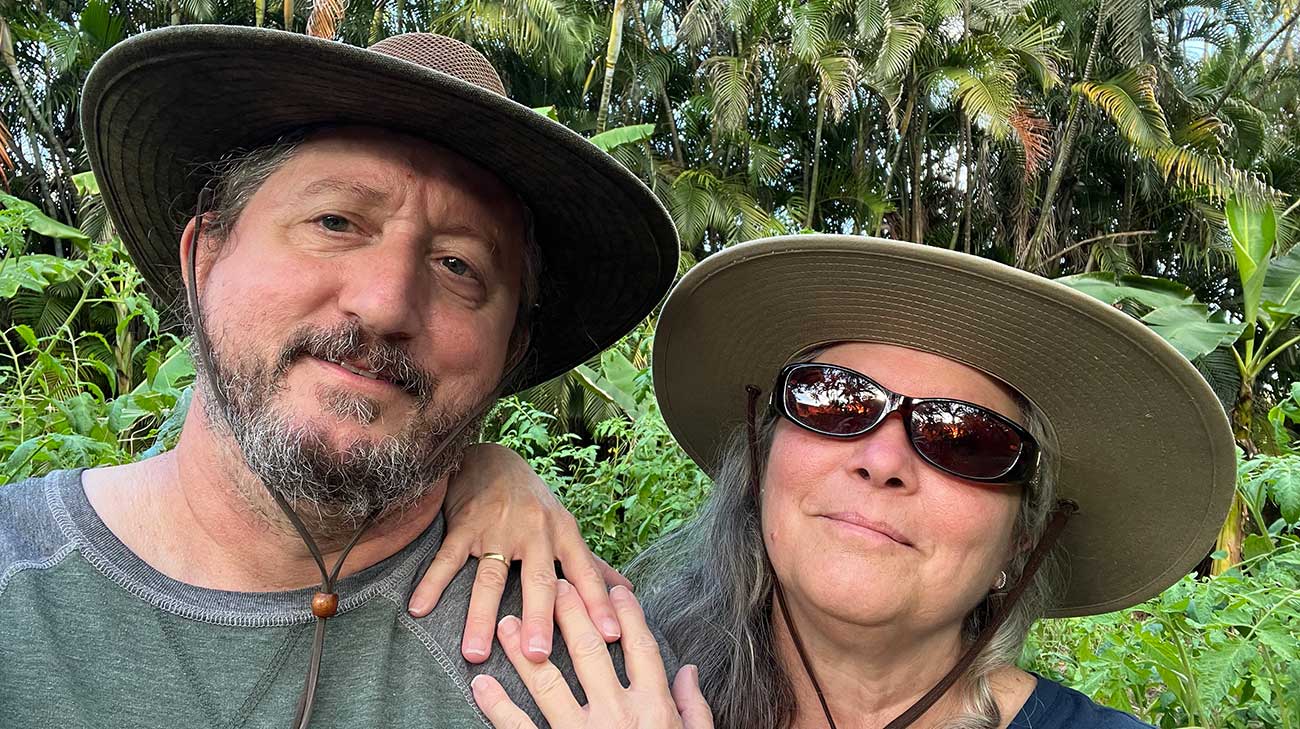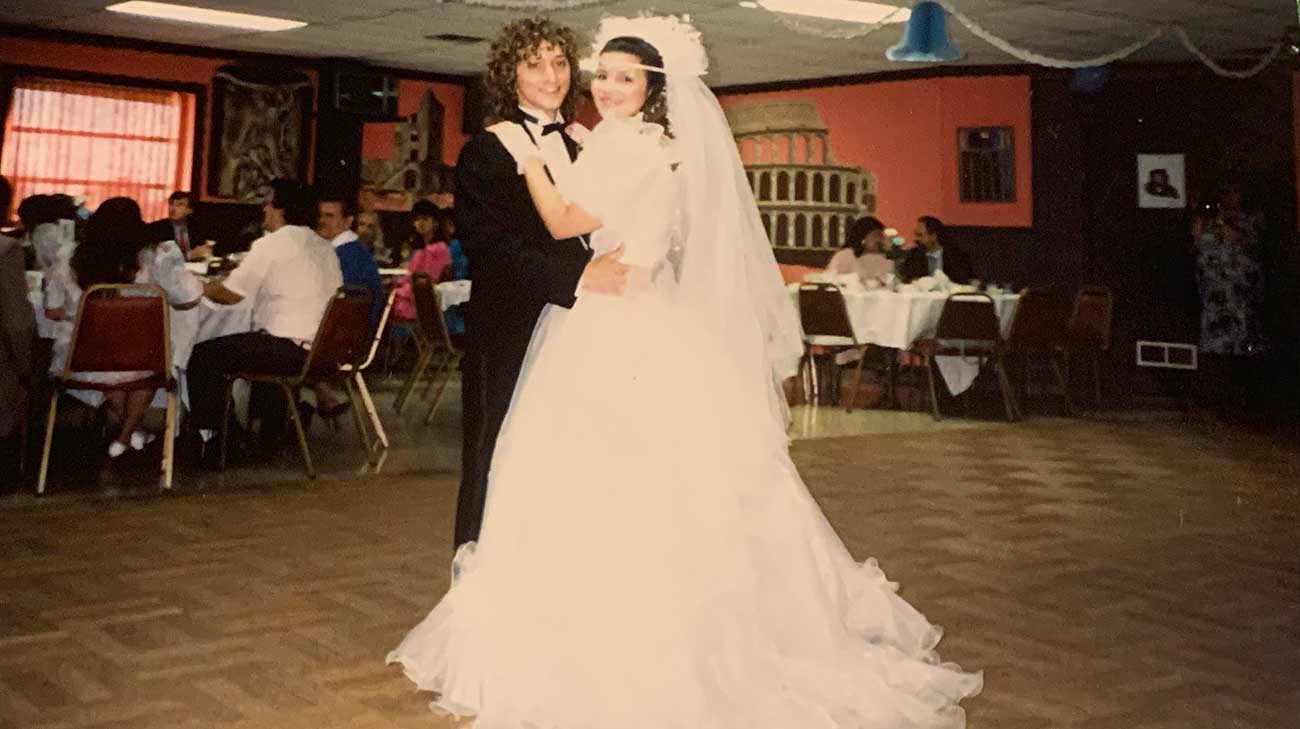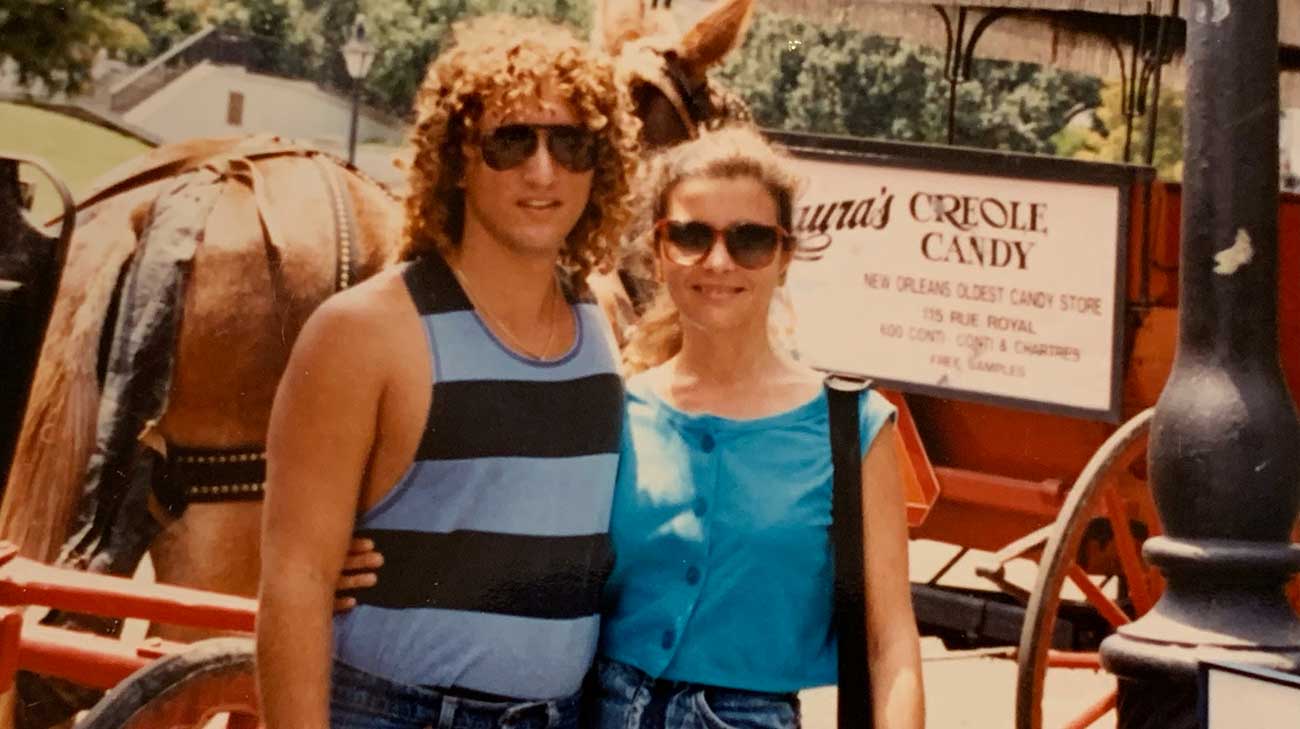
High school sweethearts Naiza and John Woodlief have been together most of their lives and are each other’s best friend.
“She’s my world. She’s my whole life,” John says of Naiza, whom he married 35 years ago on the day before Valentine’s Day.
This year’s wedding anniversary, however, is extra special as John and Naiza enjoy the gift of more precious time together after an emergency that almost changed their lives forever.

The two were at home one Saturday in January putting away groceries when Naiza dropped something and started tugging on her shirt. John knew something was wrong when he asked her if she was ok and she did not respond.
“She started losing control of her right side, so I held her up and dialed 911,” John says. “I knew right then what was going on.”
Naiza was experiencing an ischemic stroke – a diagnosis that would soon be made at Cleveland Clinic Weston Hospital. Luckily, though, John recognized the signs immediately and acted quickly. Time is of the utmost importance in getting the best possible outcome from stroke treatment.
Naiza was taken by ambulance to Weston Hospital where Michal Obrzut, MD, a neurointerventional surgeon, and his team were prepared to treat her.
“I knew right away when I received the call that a patient was coming in who could not move her right side or speak that this was most likely a blood clot in the left side of the brain,” Dr. Obrzut says. This was quickly confirmed with a CT scan and an angiogram.
Within minutes Naiza underwent a procedure to remove the blood clot from her brain. By the time she woke up from anesthesia, she was completely recovered with no neurological deficit from the stroke.
“I can’t thank the team at Cleveland Clinic Florida enough. They are the reason I am here the way I am.”
“Our team did an incredible job,” Dr. Obrzut says. “But her husband is the hero because if he had not gotten her to the hospital so quickly, we could have done the same procedure but had a much different outcome.”
Thousands of brain cells die each minute during a stroke, Dr. Obrzut explains, so the sooner a patient is treated, the more neurological function that can be saved and the better off the patient will be.
“Knowing the signs of stroke is very important as stroke is silent,” Dr. Obrzut says. “If a person’s face is asymmetrical, they are slurring or drooling, or they have sudden arm or leg weakness or problems with vision, understanding speech or balance, call 911. Every minute counts – literally.”
Efrain Salgado, MD, Director of the Cleveland Clinic Florida Stroke Center, says the national benchmark for the critical time between when a stroke patient enters the emergency room to when they are treated is 45 minutes. Cleveland Clinic Florida’s average time is 19 minutes.
The Cleveland Clinic Florida Stroke Center is run by a multidisciplinary staff of healthcare providers with expertise in the care of stroke patients, and the center itself is designed for rapid ease of transition between the emergency room, the imaging center and the stroke procedure room, all contributing to the most expeditious access to the highest quality stroke care.

Naiza and John are both grateful they live so close to Weston Hospital and for the care she received while there.
“I couldn’t have asked for a better outcome,” Naiza says. “I can’t thank the team at Cleveland Clinic Florida enough. They are the reason I am here the way I am.”
John is elated to still have the love of his life by his side. “The doctors really saved two lives that day,” he adds.
Related Institutes: Neurological Institute

